Elderly internally displaced persons (IDPs) experience the consequences of forced displacement particularly acutely, facing increased social isolation and chronic anxiety. This condition highlights a critical need to strengthen their psychological resilience and restore social connections. To provide adequate psychological support and enhance the internal resources of this target group, a specialised art therapy session titled “Friendly Support” took place on October 24, 2025, in the dormitory of the Separate Structural Unit of the Poltava Oil and Gas Vocational College of the National University “Yuri Kondratyuk Poltava Polytechnic”. The event, designed for a small group (6–10 participants), was conducted in an exceptionally warm, cosy, and trusting atmosphere – a necessary prerequisite for successful group psychotherapeutic work.
The session was conducted by highly qualified specialists from the Department of Psychology and Pedagogy: Lesia Klevaka, Candidate of Pedagogical Sciences, Acting Head of the Department of Psychology and Pedagogy; Maryna Teslenko, Candidate of Pedagogical Sciences, Associate Professor of the Department of Psychology and Pedagogy; and Viktoriia Shevchuk, Candidate of Psychological Sciences, Associate Professor of the Department of Psychology and Pedagogy. The event, lasting up to two hours, combined art therapy techniques, elements of “symbol-drama”, and work with metaphorical associative cards (MACs). The main goal was to create a safe space for emotional restoration, facilitate the realisation of internal strengths, and activate positive experiences of mutual aid, thereby reducing levels of loneliness and anxiety.
The event, structured on the principles of integrative art therapy, became a deep journey into internal resources, emotional cleansing, and strengthening social connections. It began with a gentle yet powerful projective method: metaphorical associative cards. This technique allowed participants to move beyond intellectual discussions and, through images, access their subconscious understanding of “friendly support”, revealing personal meanings and experiences difficult to articulate.
This stage of awareness was further amplified in the subsequent creative part – the creation of their own “Tree of Friendship”. The use of the tree archetype, symbolising rootedness, vitality, and stability, provided therapeutic value. Participants visualised their support network, symbolically depicting the people who support them, and also focused on their own qualities – internal resources that allow them to be a pillar of support for others. This process not only strengthens a sense of belonging and safety but also increases self-esteem, emphasising their own capacity for interaction and giving.
The emotional peak and central axis of the session was the eco-art therapy exercise “Autumn Tree of Letting Go”, based on the healing power of natural materials. Tactile interaction with autumn leaves of various shapes and shades, rowan clusters, and small branches provided essential grounding and connection to natural cycles, reducing overall anxiety. This ritual was aimed at catharsis – a symbolic release of accumulated experiences.
The key therapeutic mechanism here was externalisation: participants transferred their anxieties, fears, or experiences by writing them down on each leaf, which they then placed on the tree model. The leaf became a container for the negative emotion, allowing the psyche to separate the problem from the self. The final stage of this deep internal dialogue involved forming the belief that with the falling of the last leaf, all anxieties would also disappear, just as autumn sorrow fades. This is a powerful metaphor for accepting cyclicality and believing in the natural process of healing, which served as an act of emotional cleansing and inner peace.
At the end of the session, a vital integration practice took place – the warm “Circle of Kind Words”. Following the individual work of emotional release, the group returned to mutual support, where everyone had the opportunity not only to share sincere wishes but also to receive words of gratitude and support, which served as validation of their experience. This group reinforcement of positive emotional experience helped integrate internal changes into the social context. The session provided not only a feeling of emotional relief and inner comfort but also a profound realisation: friendly support is an invisible yet strong thread woven between hearts, ensuring resilience even during the most challenging periods of life.
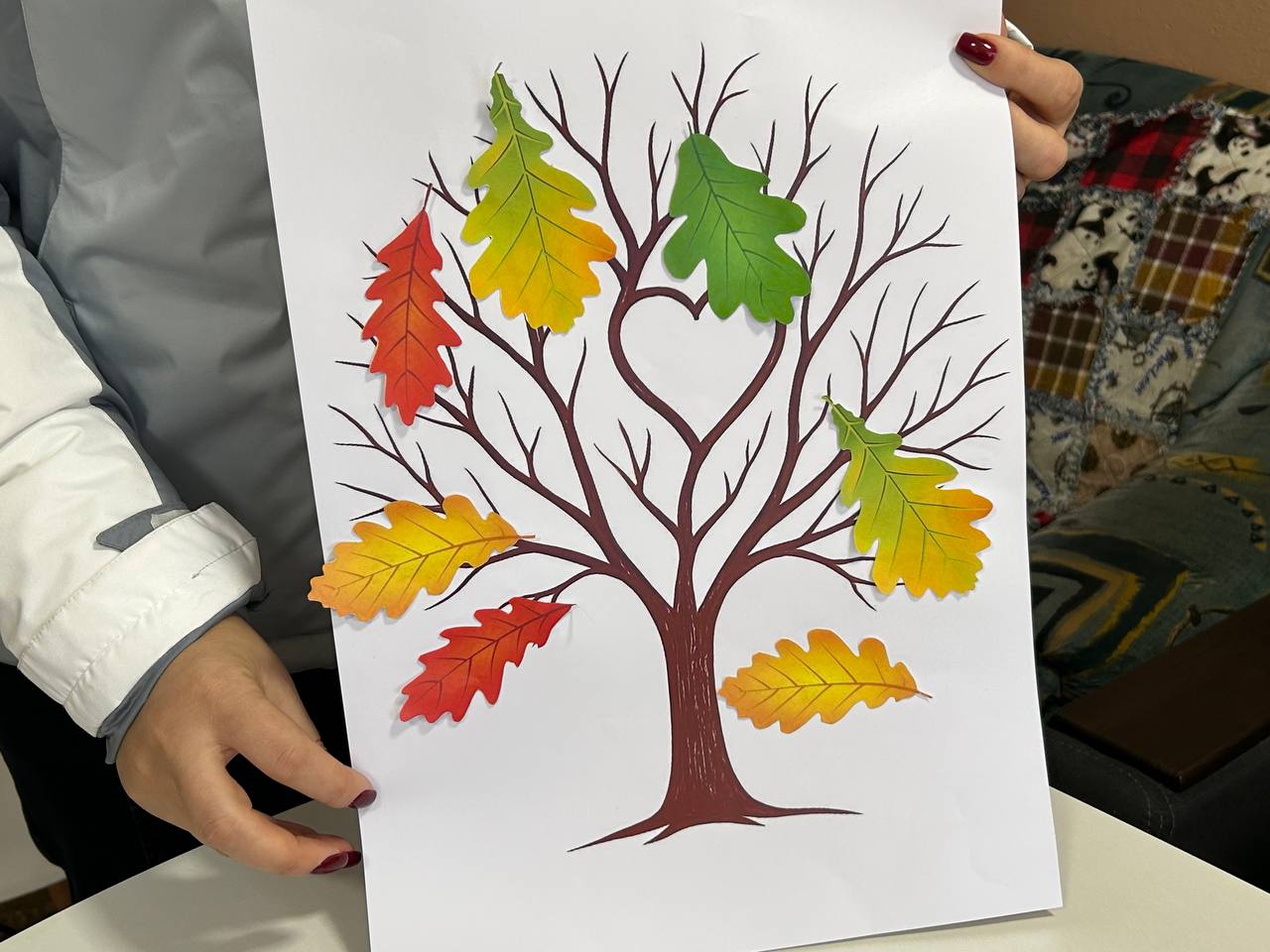
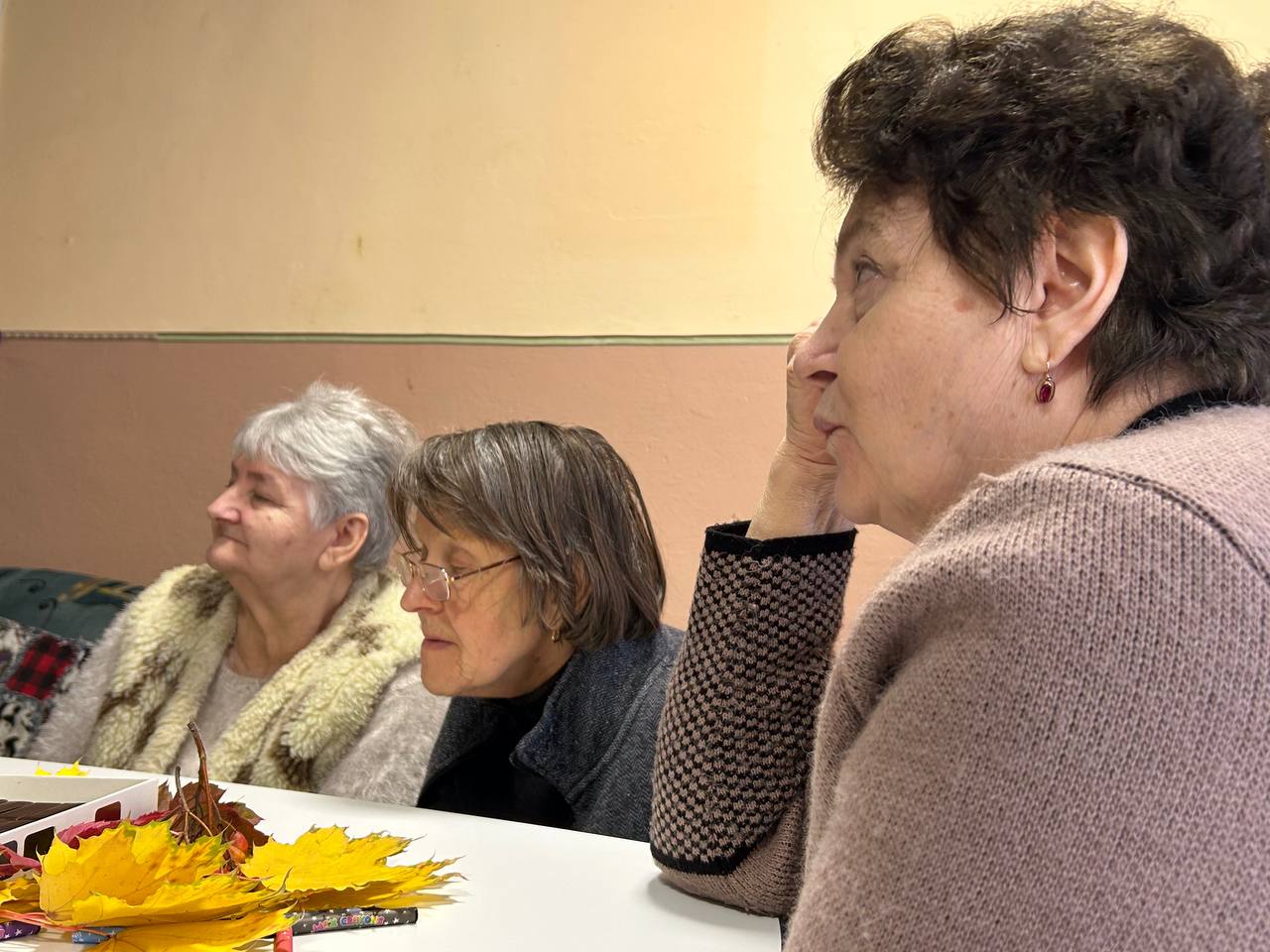
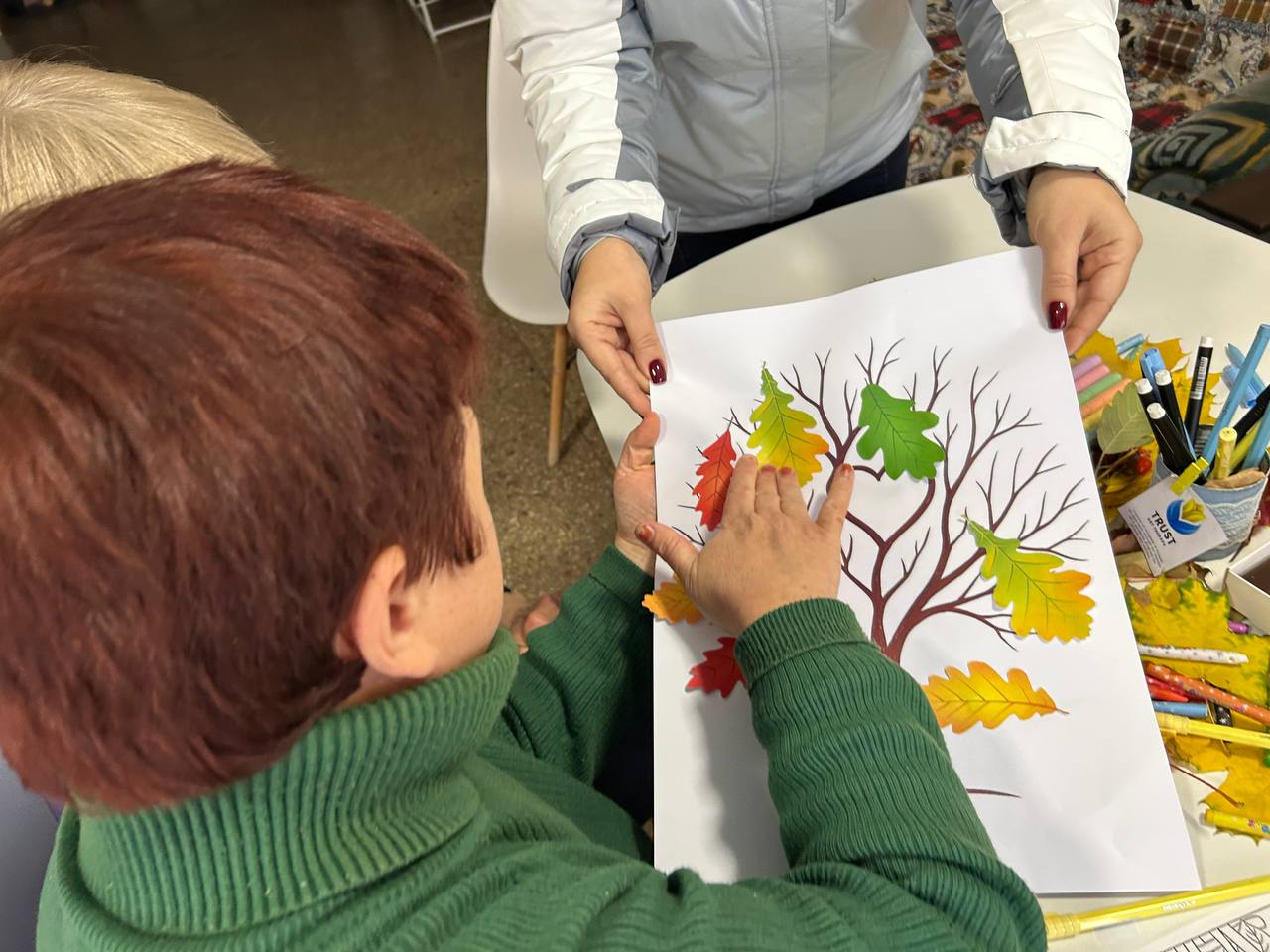
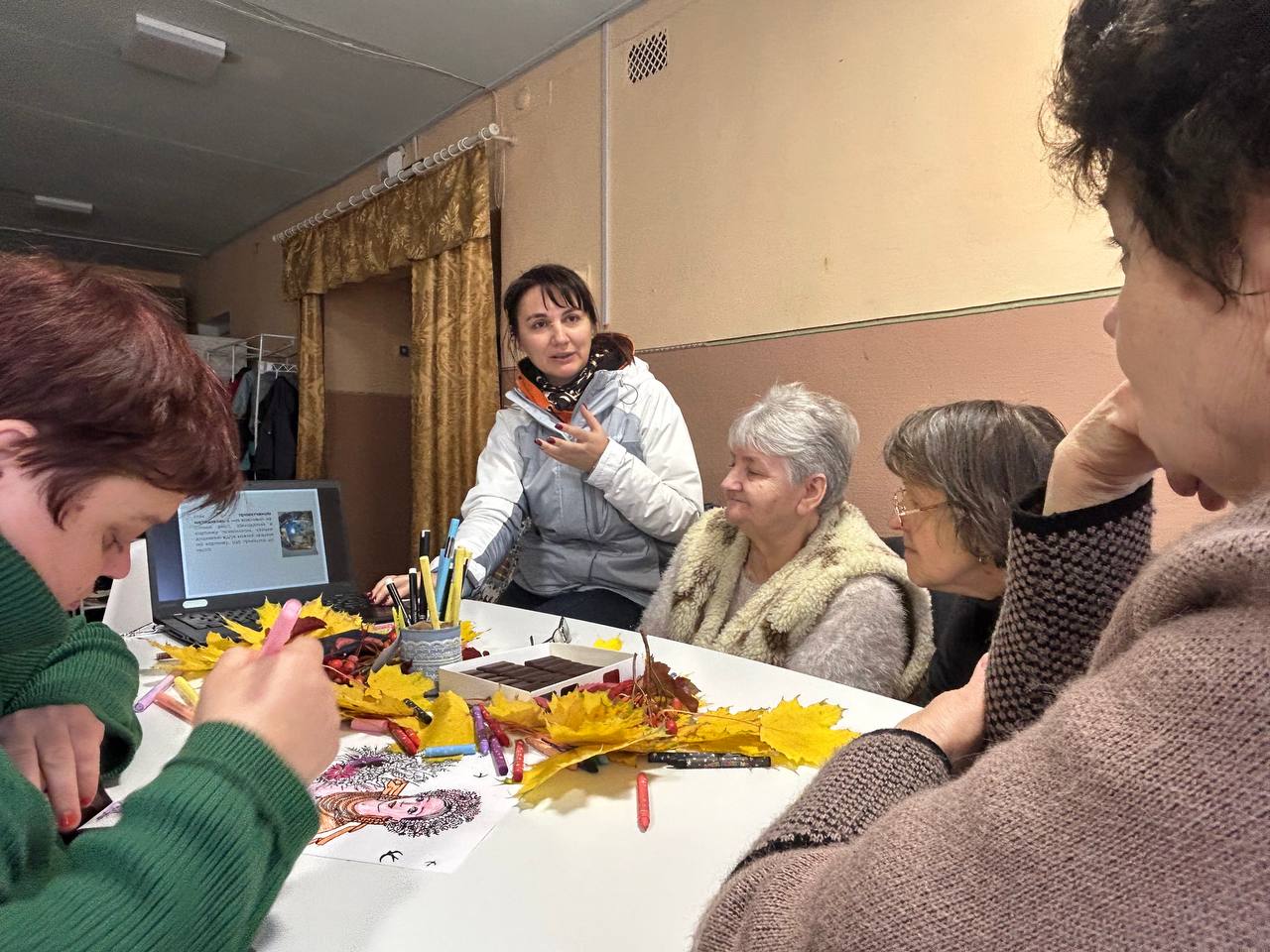
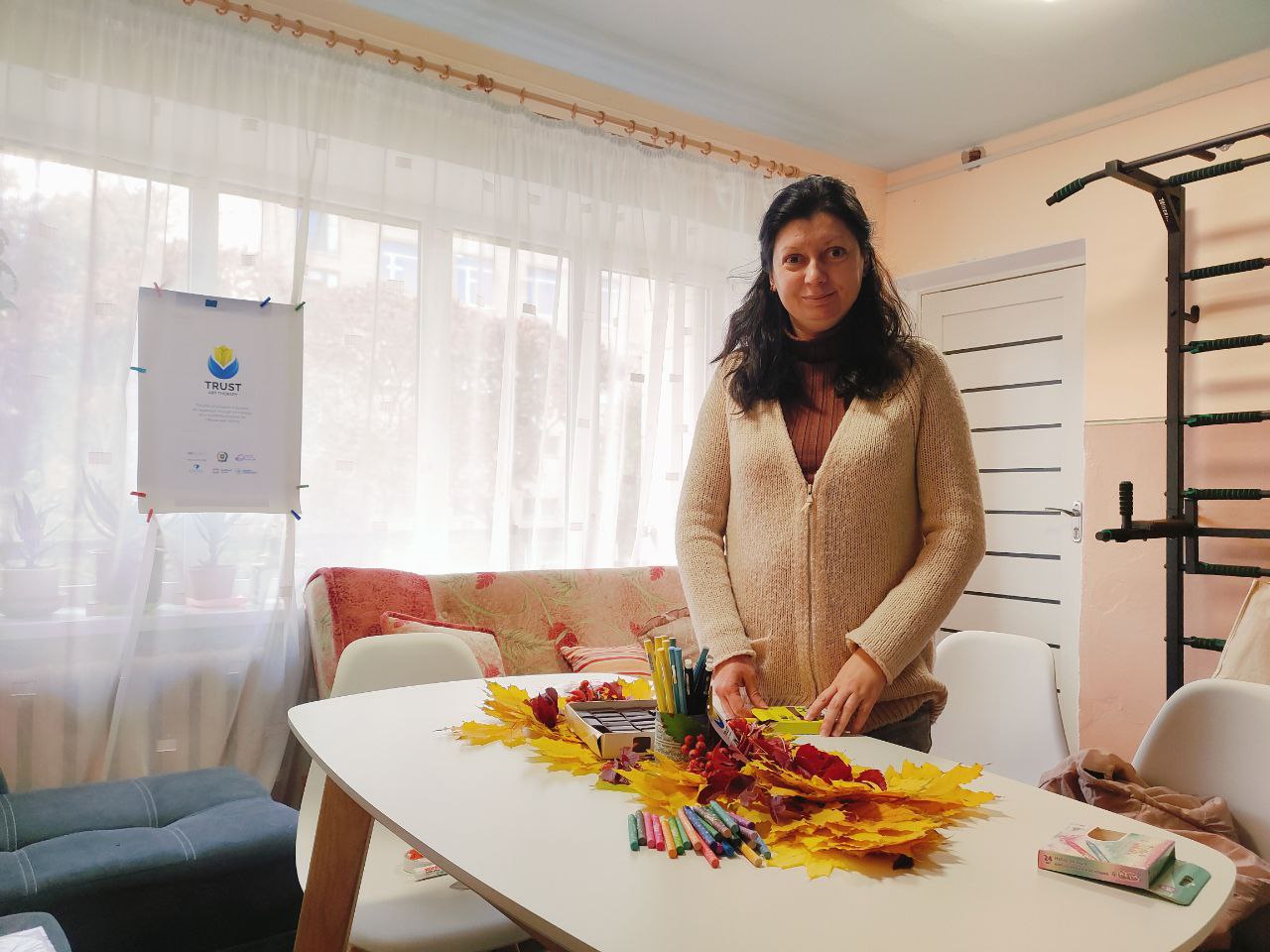
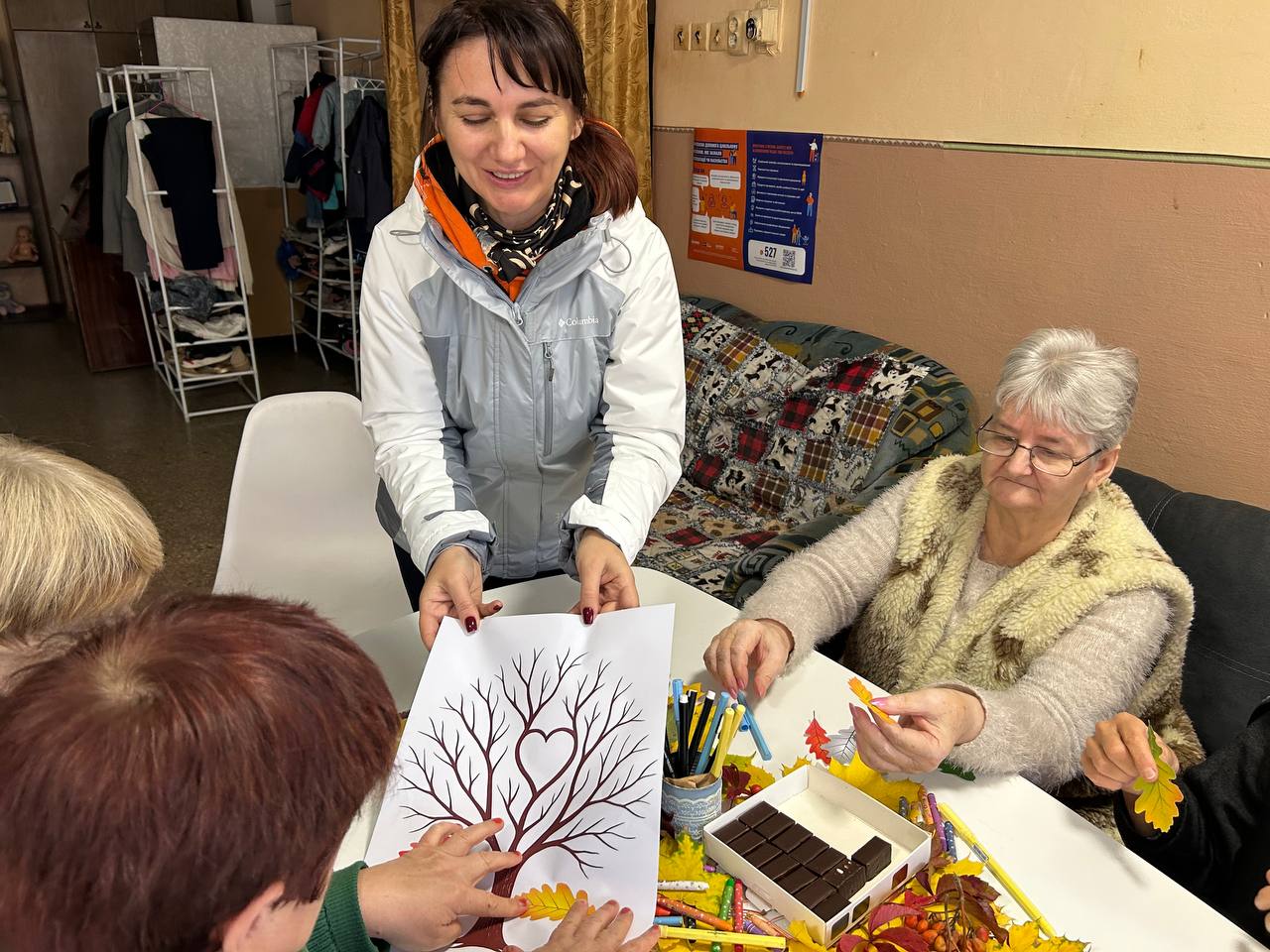
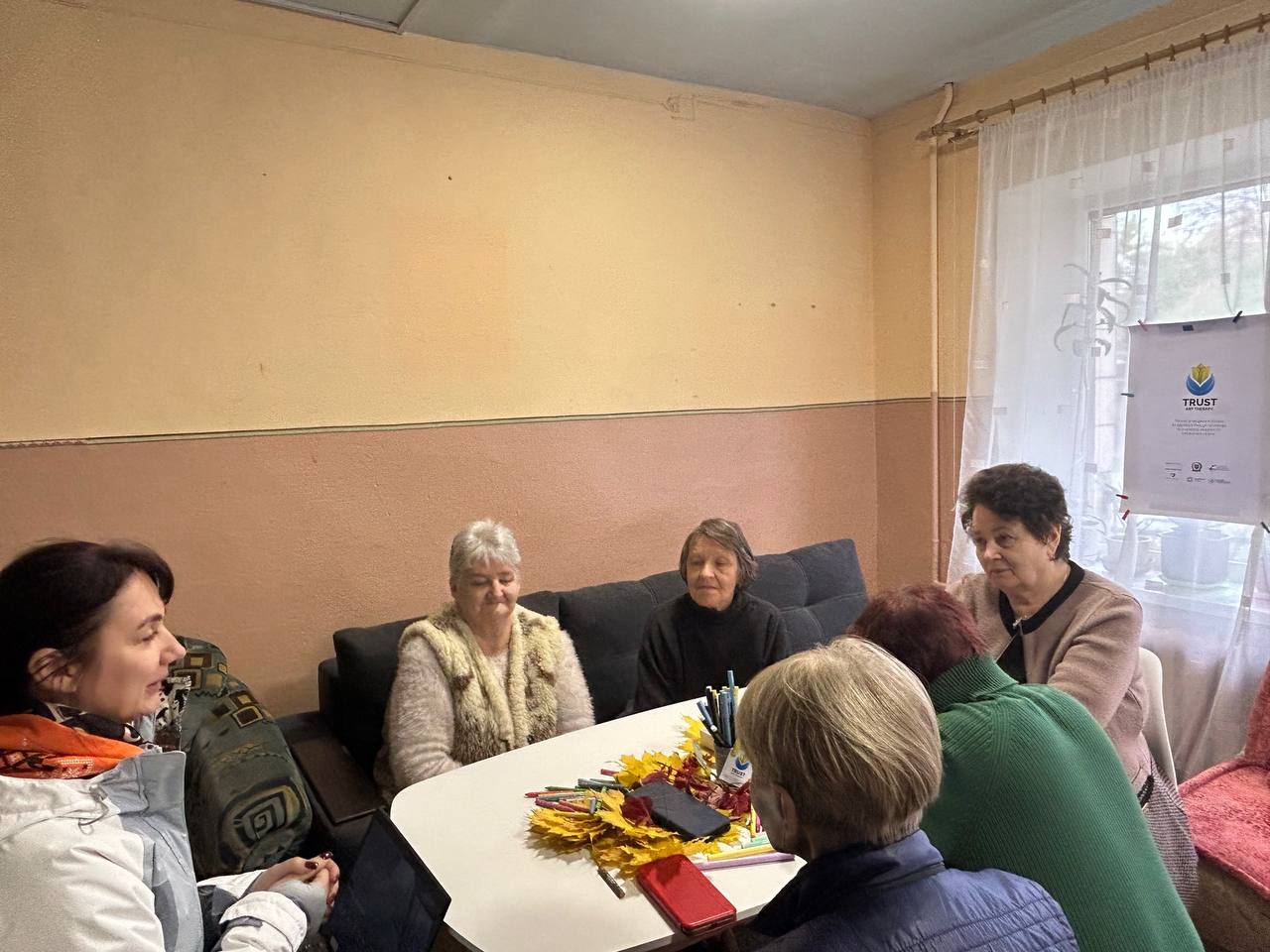
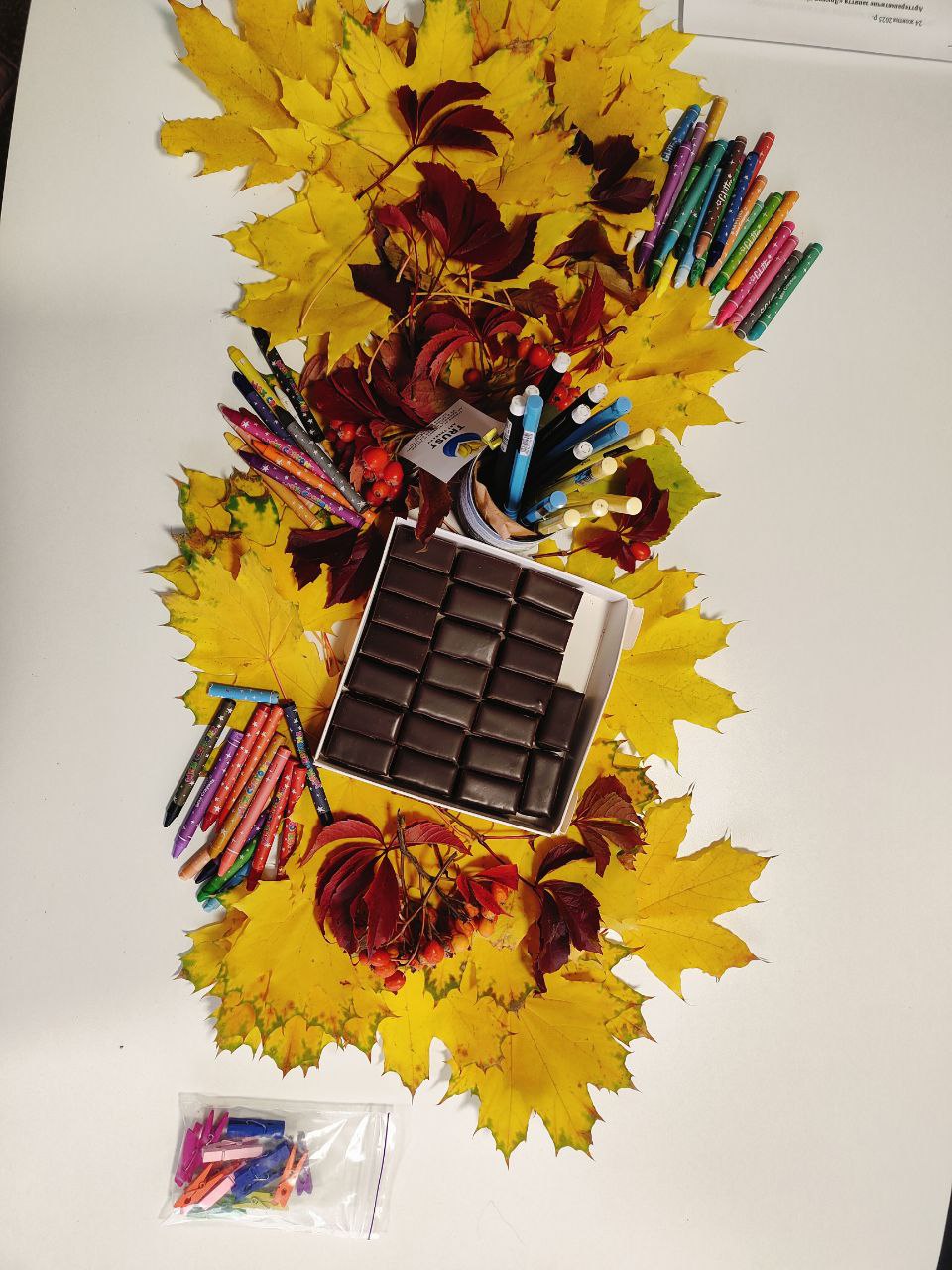
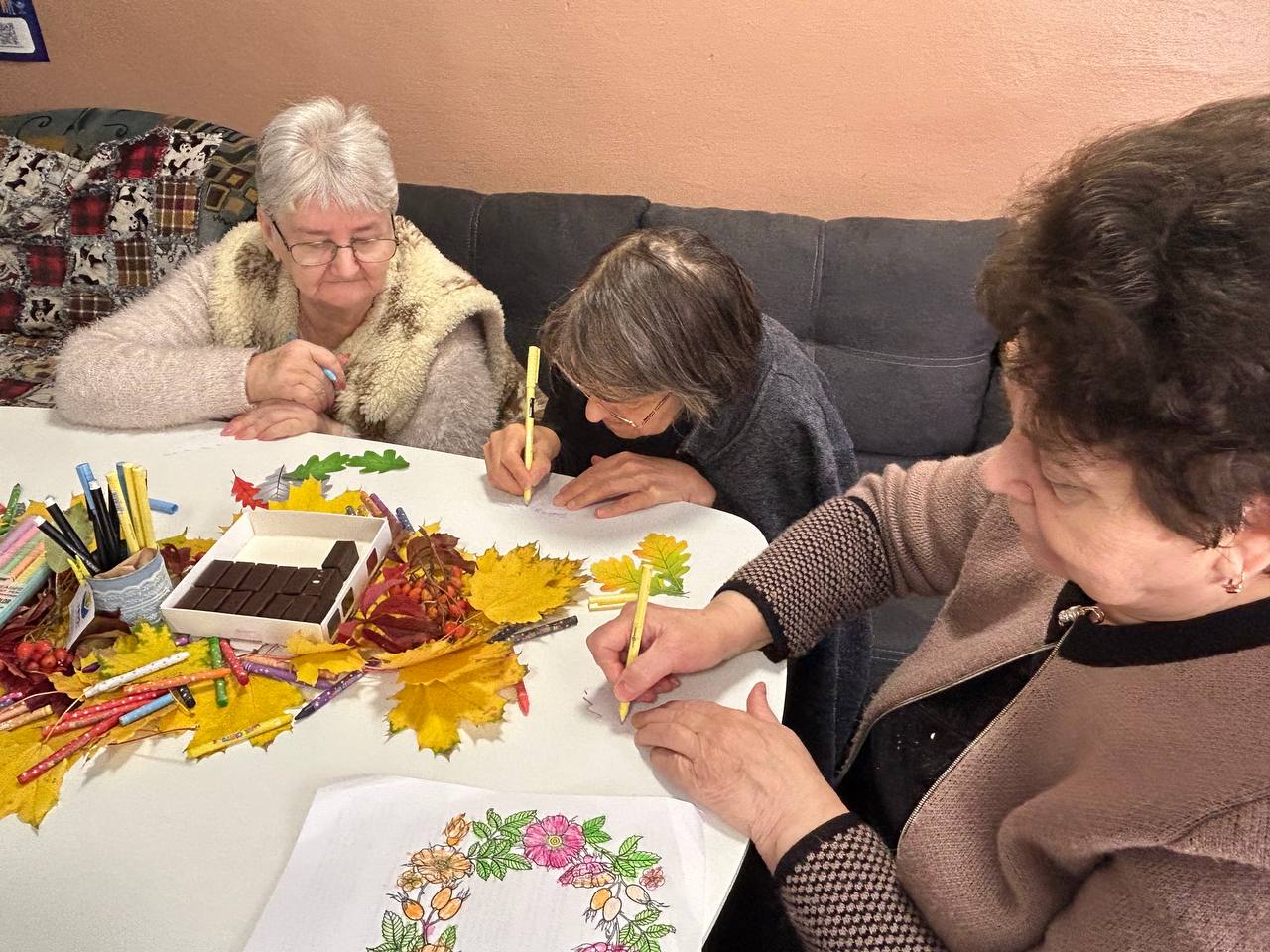
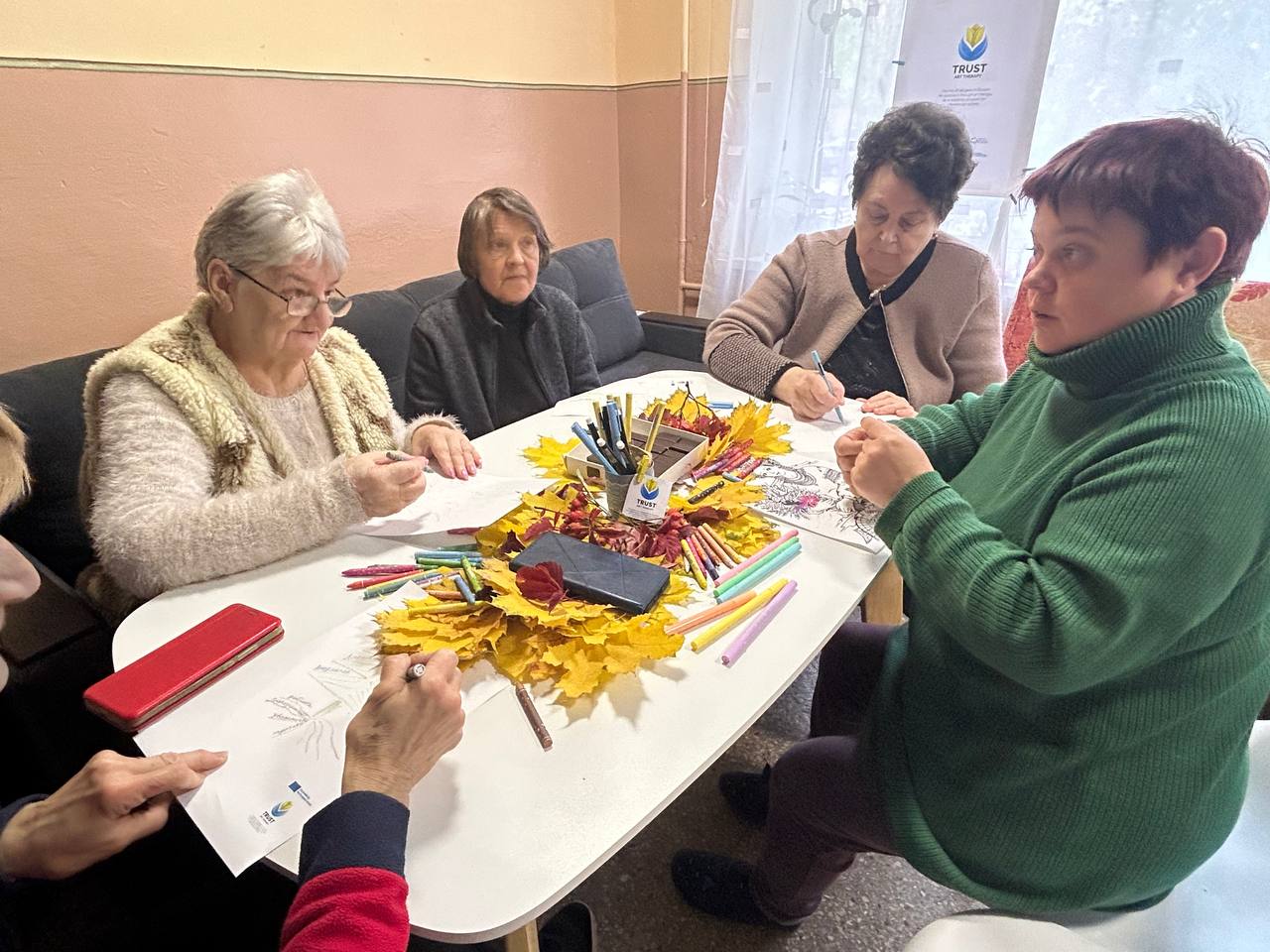
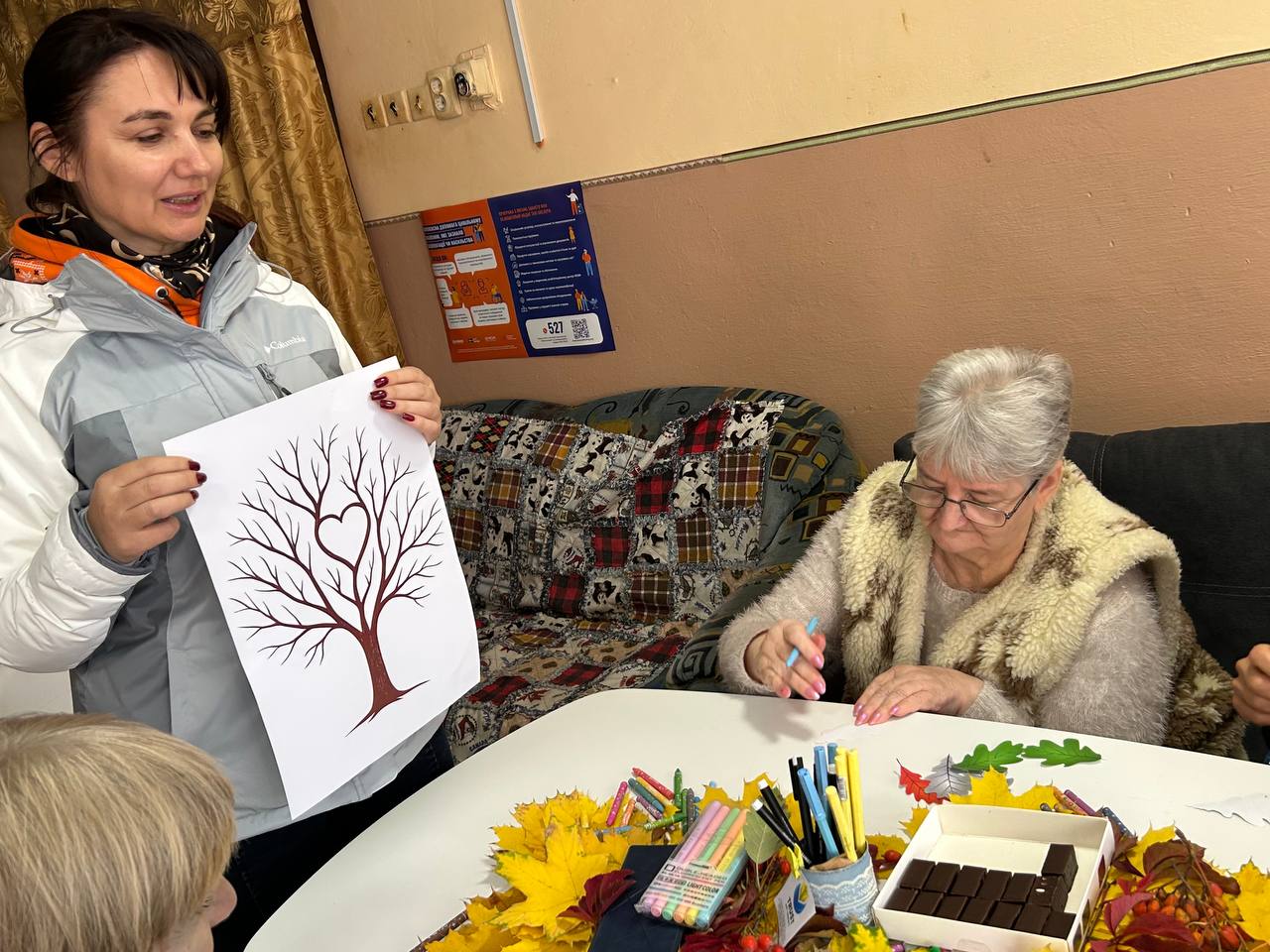
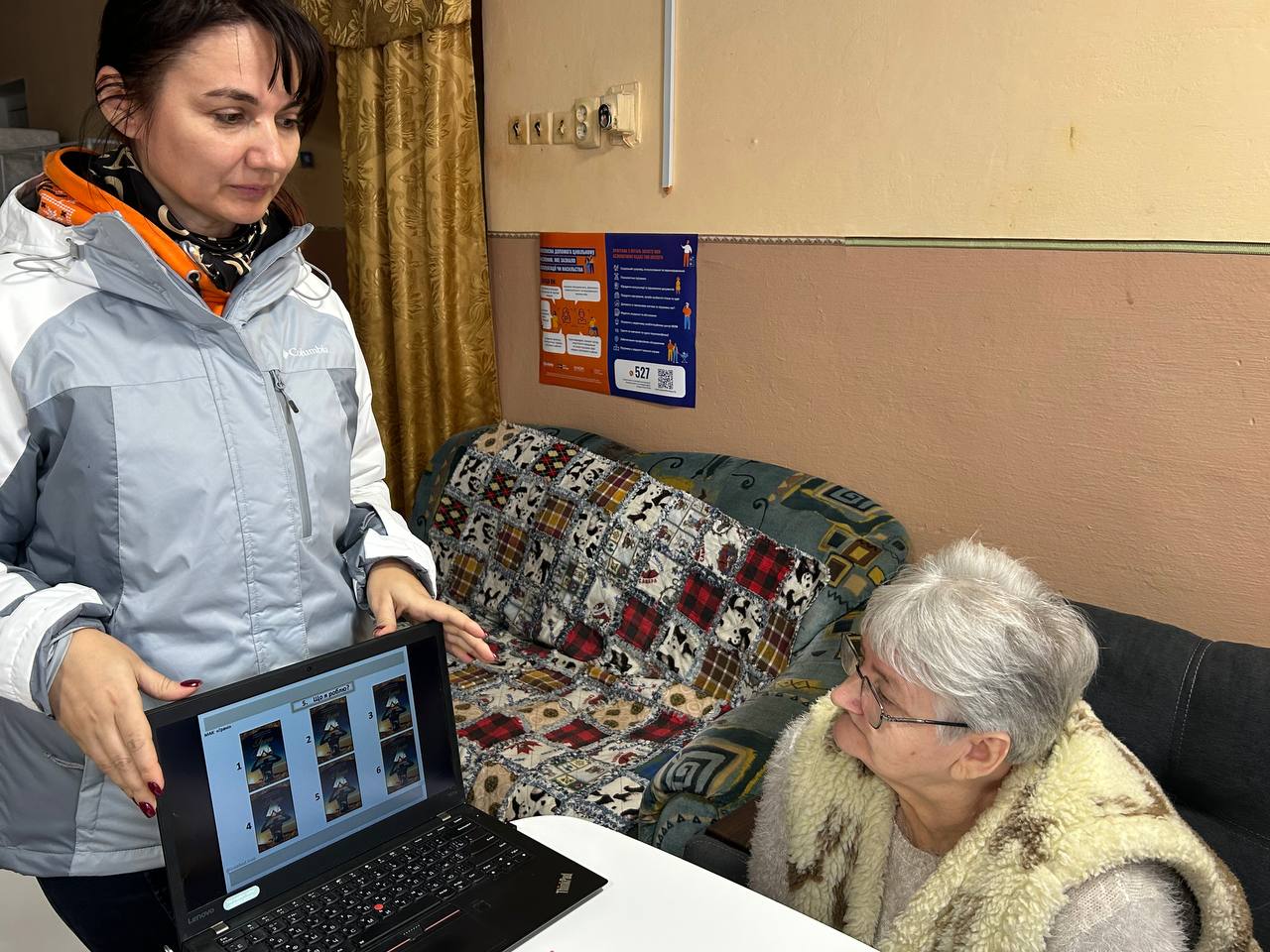
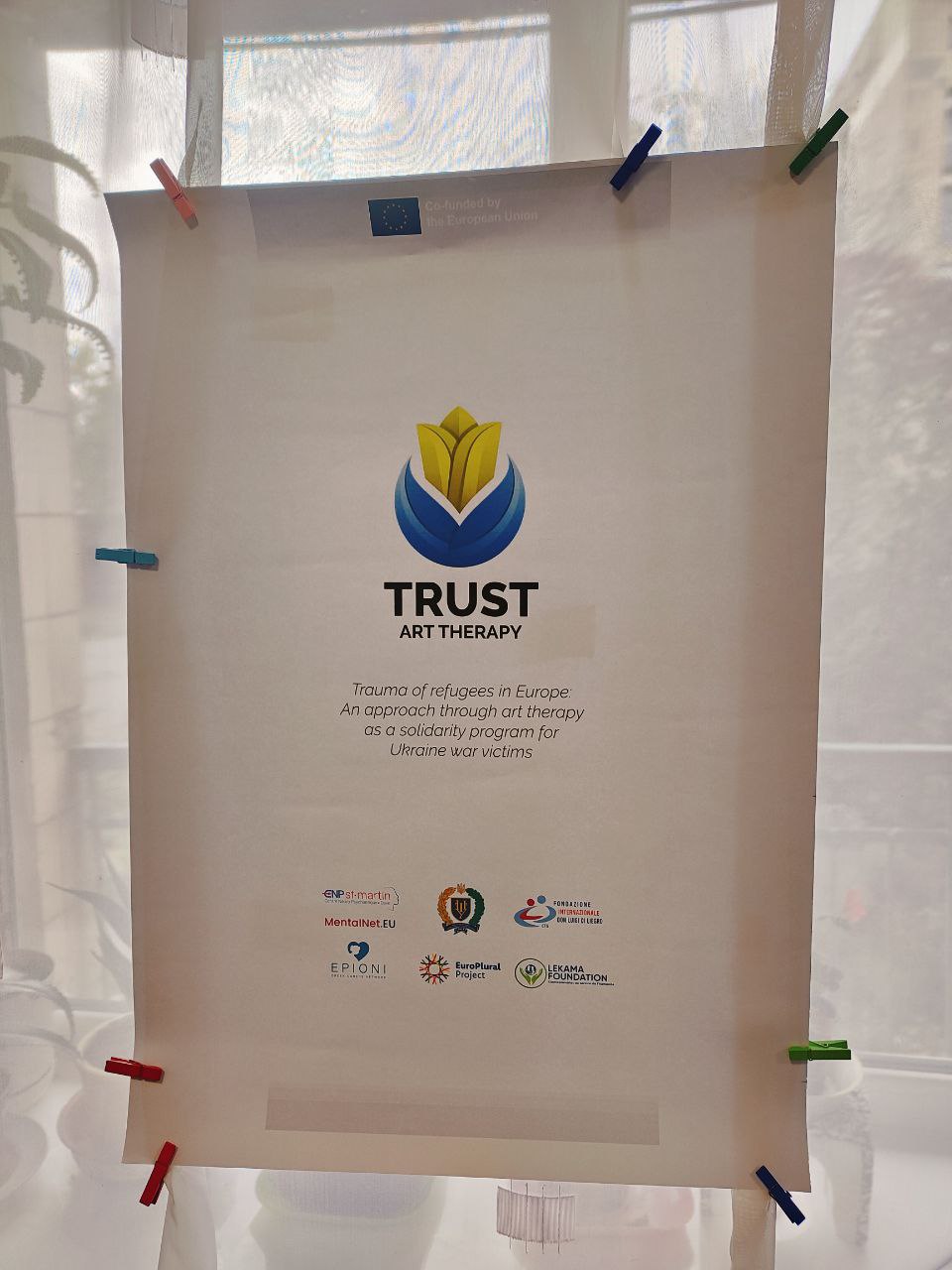
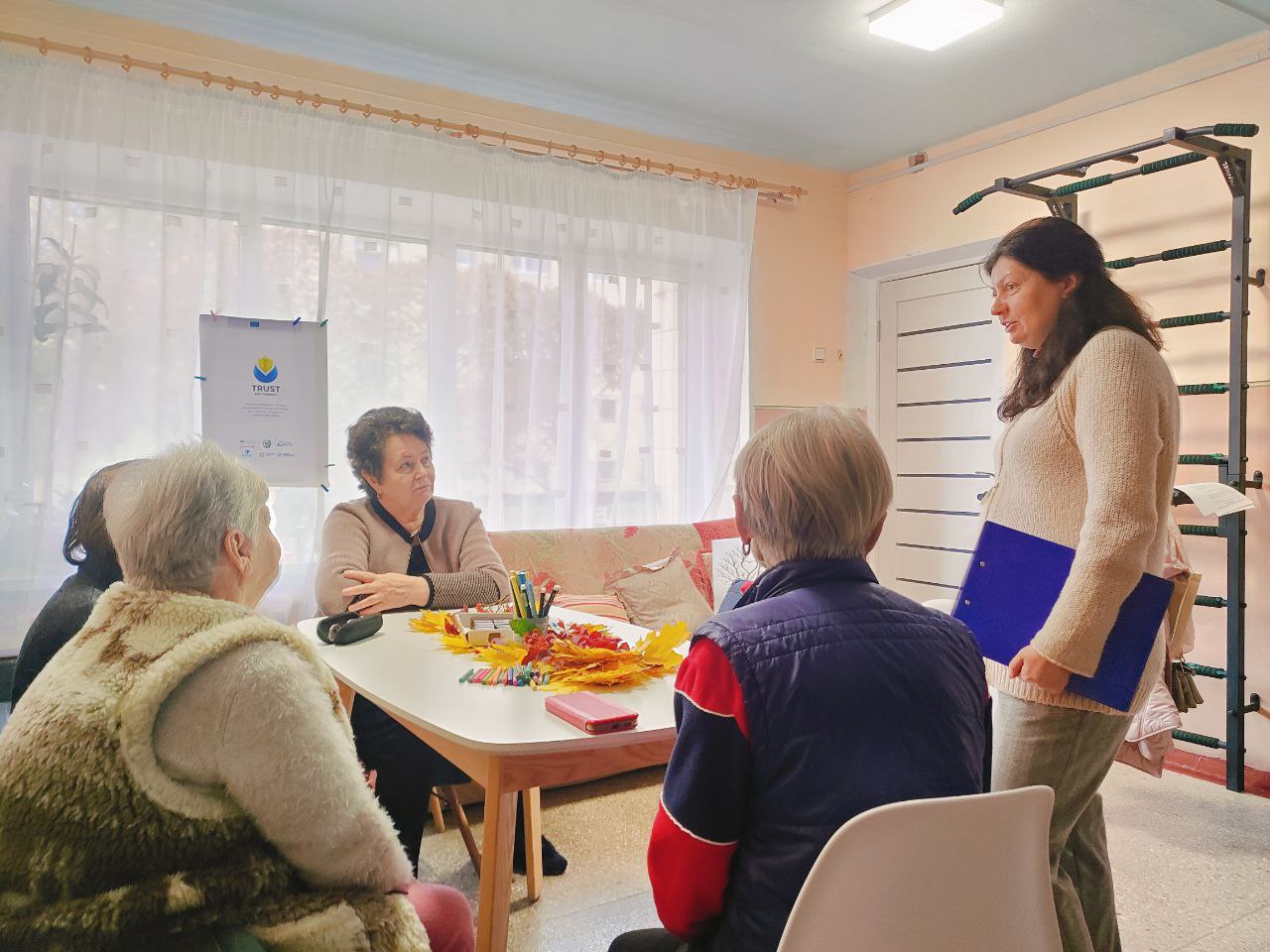
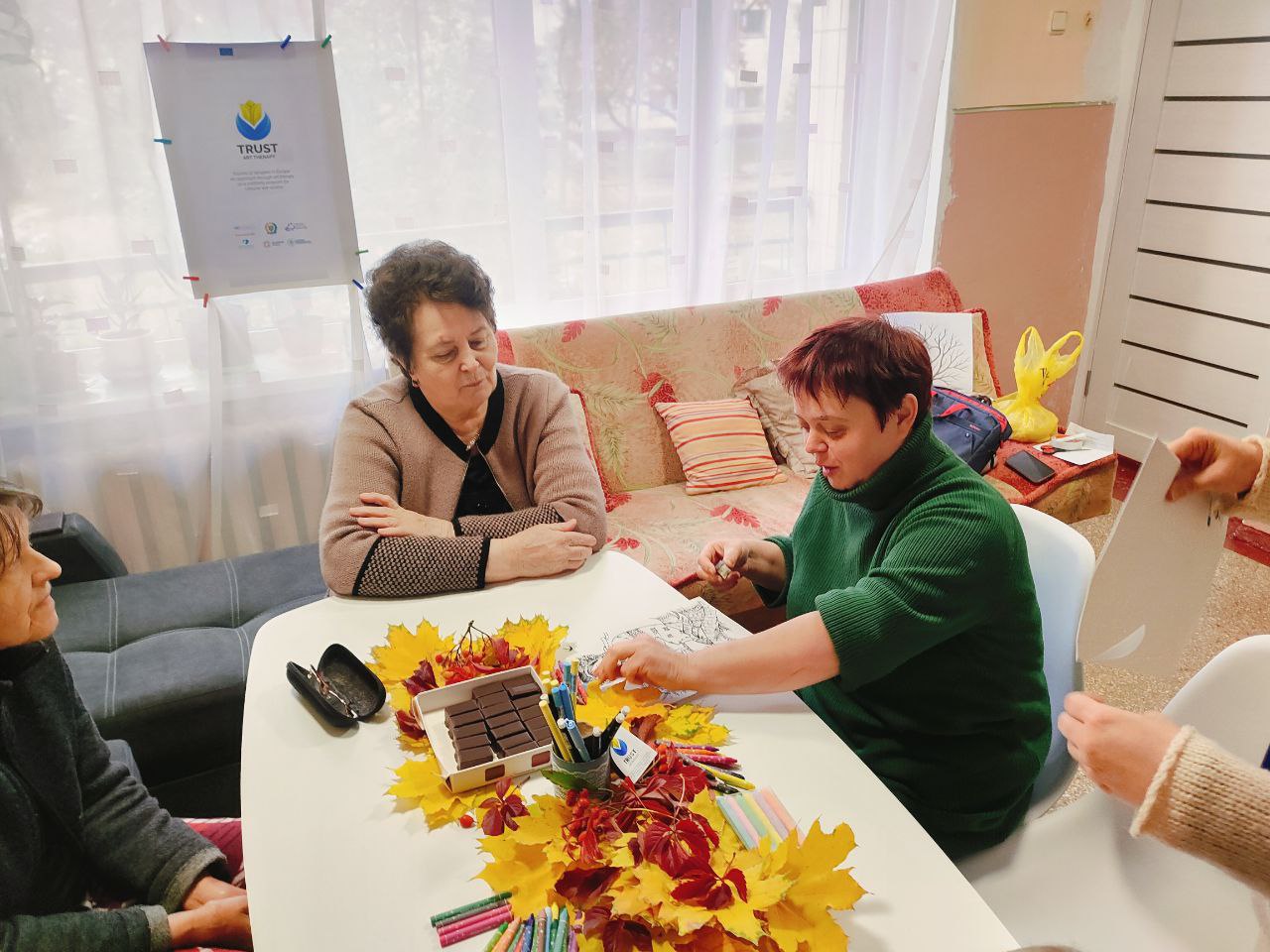
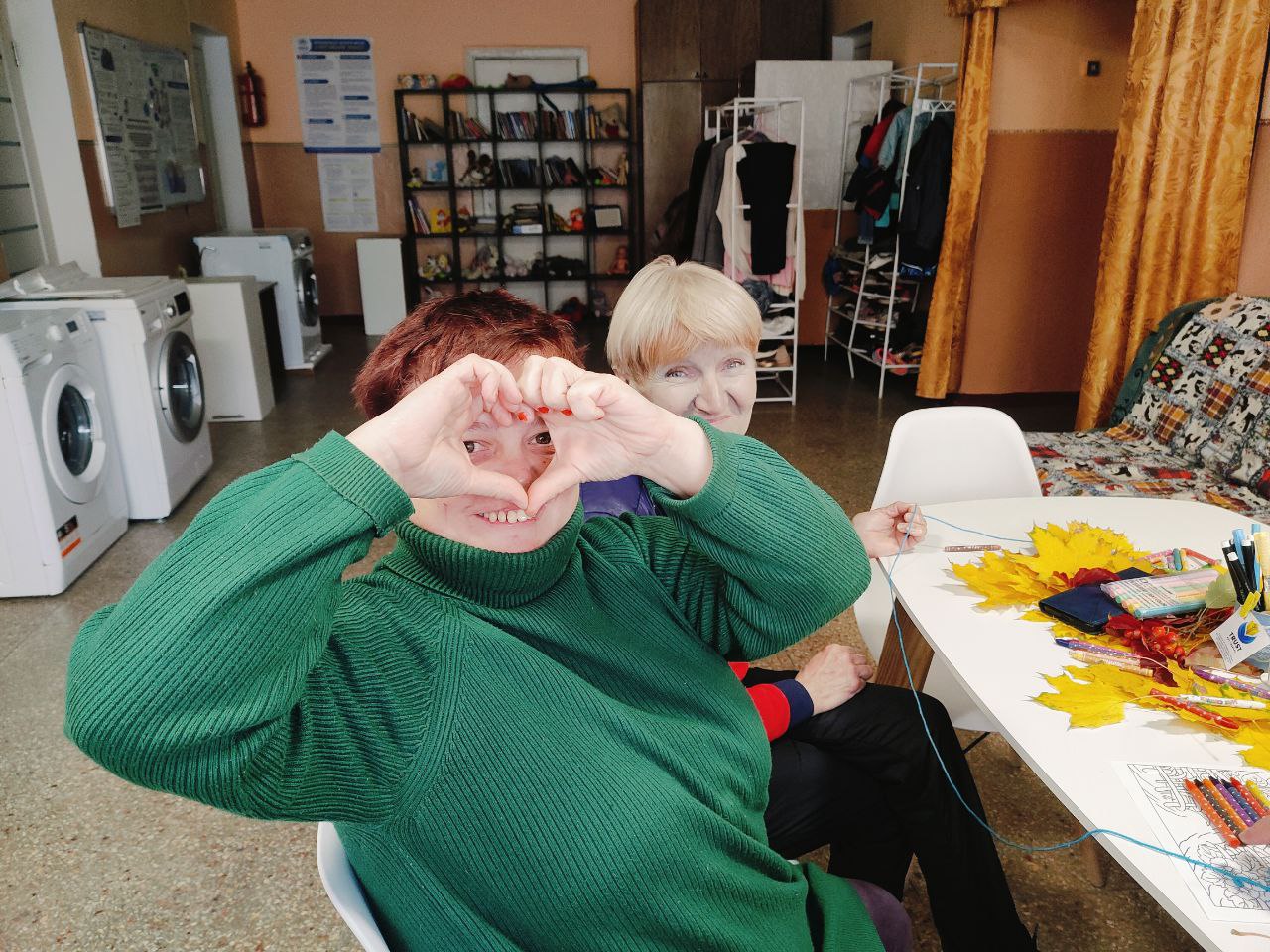
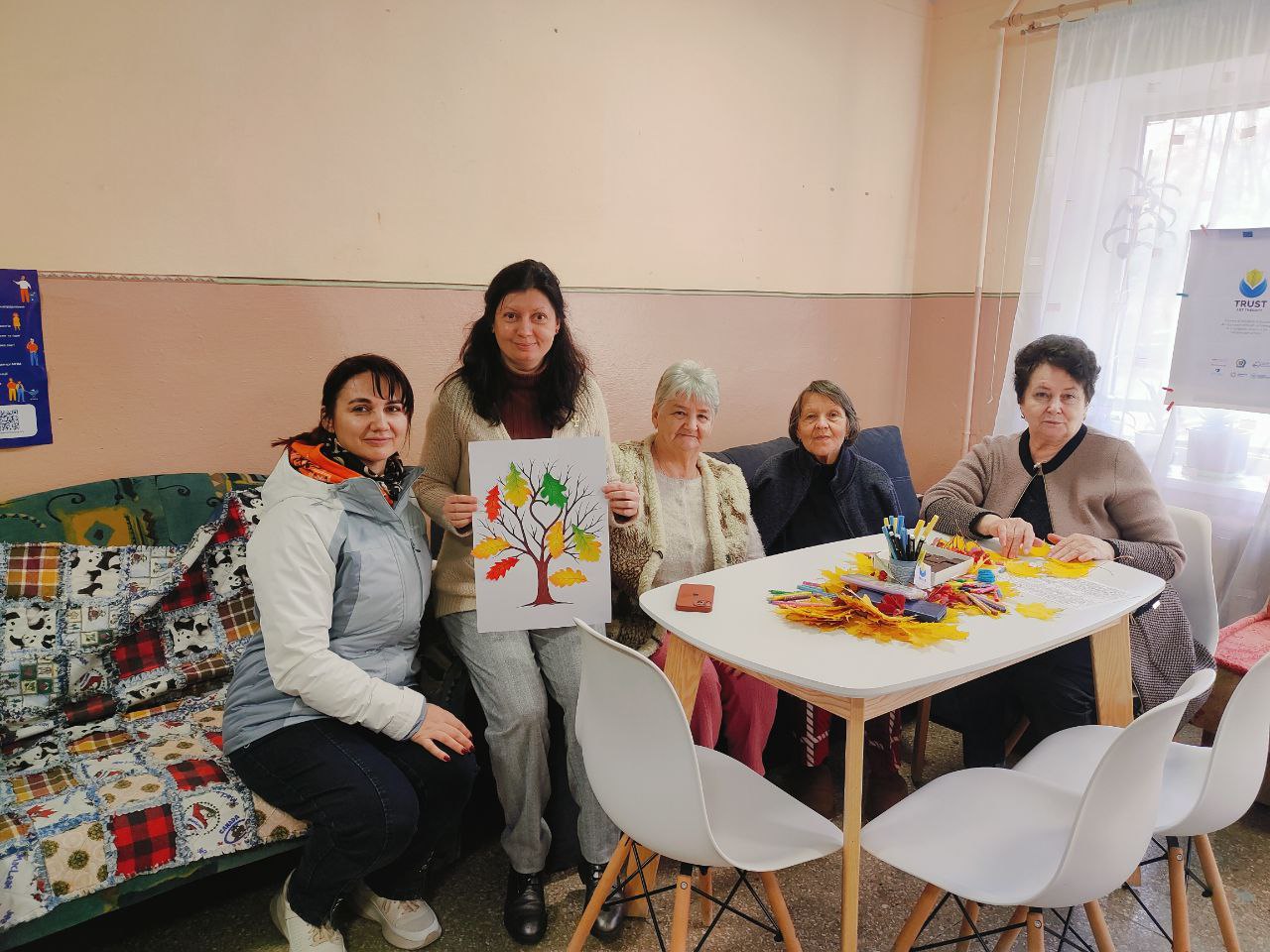
The event was held as part of the international, large-scale EU-funded Erasmus+ KA220-ADU project “TRUST” – Trauma of refugees in Europe: An approach through art therapy as a solidarity program for Ukraine war victims (Grant No. 2024-BE01-KA220-ADU-000257527).
The project title is decoded as follows:
TRUST
T – Trauma
R – Refugees
U – Ukraine
S – Solidarity
T – Therapy
The project is co-funded by the EU and led by the Centre Neuro Psychiatrique St-Martin from Belgium, in partnership with the National University “Yuri Kondratyuk Poltava Polytechnic” (Ukraine), Greek Carers Network EPIONI (Greece), Fondazione Don Luigi Di Liegro (Italy), Lekama Foundation (Luxembourg), EuroPlural Project (Portugal).
We express our sincere gratitude to our partners for their invaluable support, which makes it possible to implement such vitally important initiatives that bring the light of hope and healing to those who need it most.
It is worth noting that Poltava Polytechnic lecturers are eligible to participate in academic mobility and internship programs. Students can study abroad through Erasmus+ credit academic mobility grant programs for a semester or a full academic year at leading universities in Austria, Denmark, Estonia, Finland, Germany, Greenland, Latvia, Lithuania, the Netherlands, Norway, Poland, Portugal, Romania, Slovakia, Spain, and the Czech Republic.
For more detailed information regarding current internship, teaching, and academic mobility programs abroad, please get in touch with the International Relations Department (office 213-C, interoffice@nupp.edu.ua) or the International Relations Coordinator of the National University “Yuri Kondratyuk Poltava Polytechnic” – Ph.D. in Philology, Associate Professor of the Department of Germanic Philology and Translation, Anna Pavelieva (email: kunsite.zi@gmail.com, phone: +38-(095)-91-08-192).
Media Centre of
National University “Yuri Kondratyuk Poltava Polytechnic”



